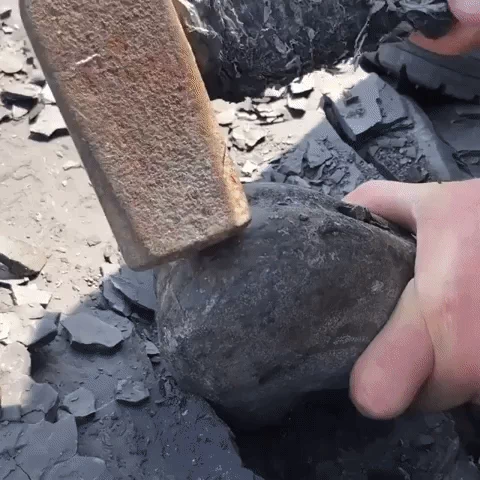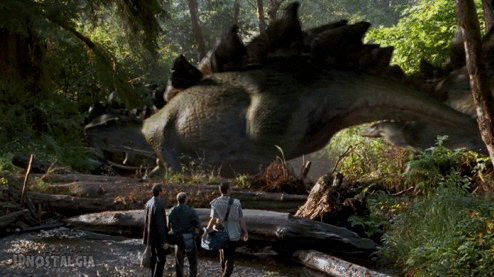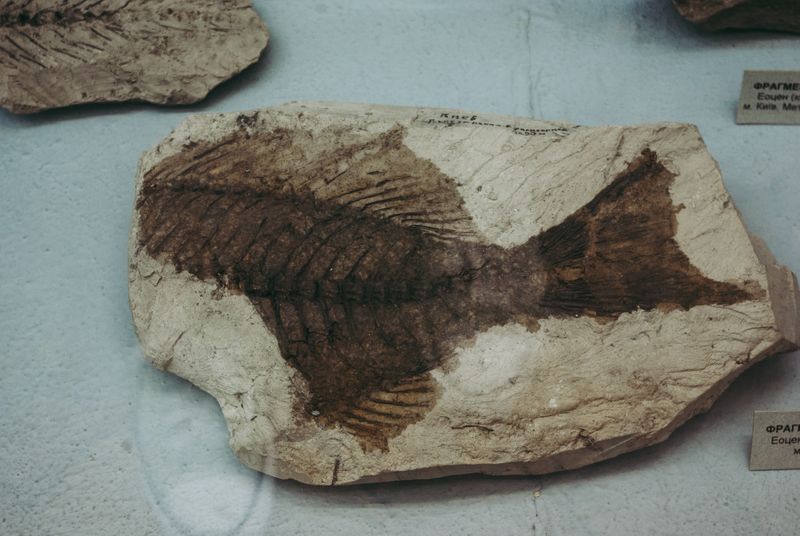When thinking about paleontologists, do images like these come to mind?

But...paleontologists study much more than just dinosaurs!
They study past life on Earth based on fossils — the remains or traces of ancient life preserved in rocks — of all kinds of organisms such as plants, animals, fungi, bacteria, and single-celled organisms.
If you have a passion for all things prehistoric, how about a career as a paleontologist?

Why do paleontologists study fossils?
Paleontologists study fossils to learn more about extinct and living organisms, for example:
an organism's life and environment — How long ago did it live? How long did it live for? In what climatic conditions did it live?
the behavior of an organism — Did it live alone or in groups?
how an organism lived — What did it eat? Where did it take shelter?
the evolution of an organism — How did the organism evolve over a period of time? Is it related to any living organism(s) today?

So...do paleontologists mainly study fossils?

Yes and No!
Paleontology is a broad discipline. There are several areas of study that a paleontologist can choose from. Some examples are:
Paleoecology — the study of ancient ecosystems and their development over time
Paleoclimatology — the study of ancient climates
Micropaleontology —the study of very small fossils
Vertebrate paleontology — the study of fossils of animals with backbones
Invertebrate paleontology — the study of fossils of animals without backbones
Paleobotany —the study of plant fossils
Quiz
True or False: Paleontologists contribute to current climate change research.
How do I become a paleontologist?
To become a paleontologist:
Take as many math and science classes in high school.
Graduate high school with good overall grades.
Pursue an undergraduate degree in geology or biology or do a double-major.
Pursue an advanced degree focusing on paleontology-related courses (Master's or PhD).
You could pursue a Master's degree before a PhD or do a PhD program directly after undergrad. This would depend on the program requirements and personal preferences.
Where do paleontologists work?
Paleontologists mainly work in colleges and universities as instructors and researchers in different departments based on their area of study. Other employment opportunities include:

Museums
care for collections
consult on exhibits
lead field excursions
conduct own research

Government Agencies
conduct regional mapping
protect fossils on public lands
educate the public

Energy Companies
fossil identification
other projects
How much do paleontologists earn?
 Average salary in the United States ranges between $57,547 and $132, 834.
Average salary in the United States ranges between $57,547 and $132, 834.
 Average salary in Canada ranges between $70,433 and $123,894 (CAD).
Average salary in Canada ranges between $70,433 and $123,894 (CAD).
Is this the right career for you?
 You'll love it if...
You'll love it if...
you enjoy learning about fossils and past life
you enjoy math and science
you like learning about and connecting ideas from different fields
you like doing research and writing
 Look for another career if...
Look for another career if...
you want to focus on one or few disciplines
you're not fond of math and/or science
you'd rather find a career in more futuristic professions
Take Action
 Would you like to know more about becoming a paleontologist?
Would you like to know more about becoming a paleontologist?
Your feedback matters to us.
This Byte helped me better understand the topic.



